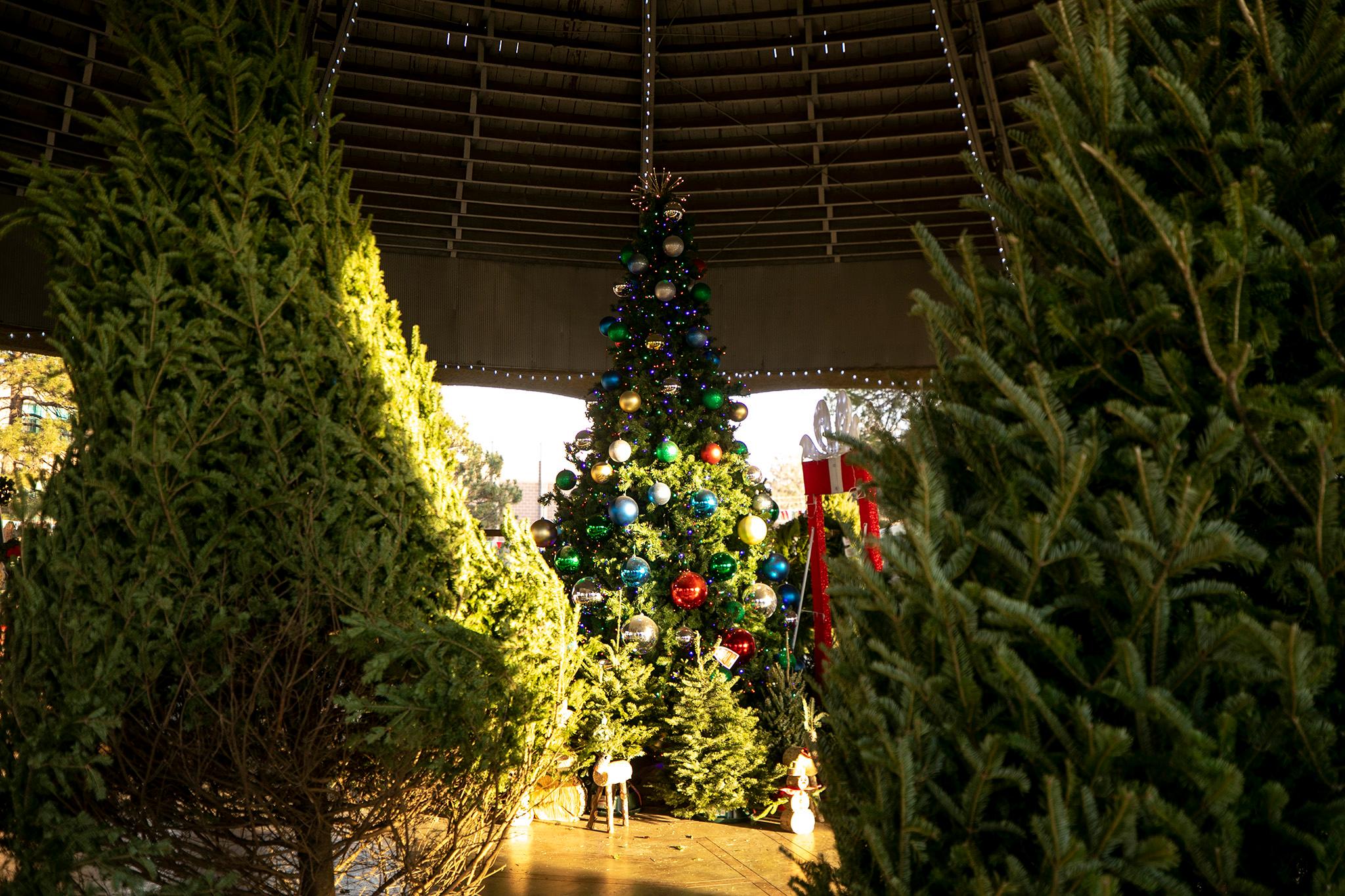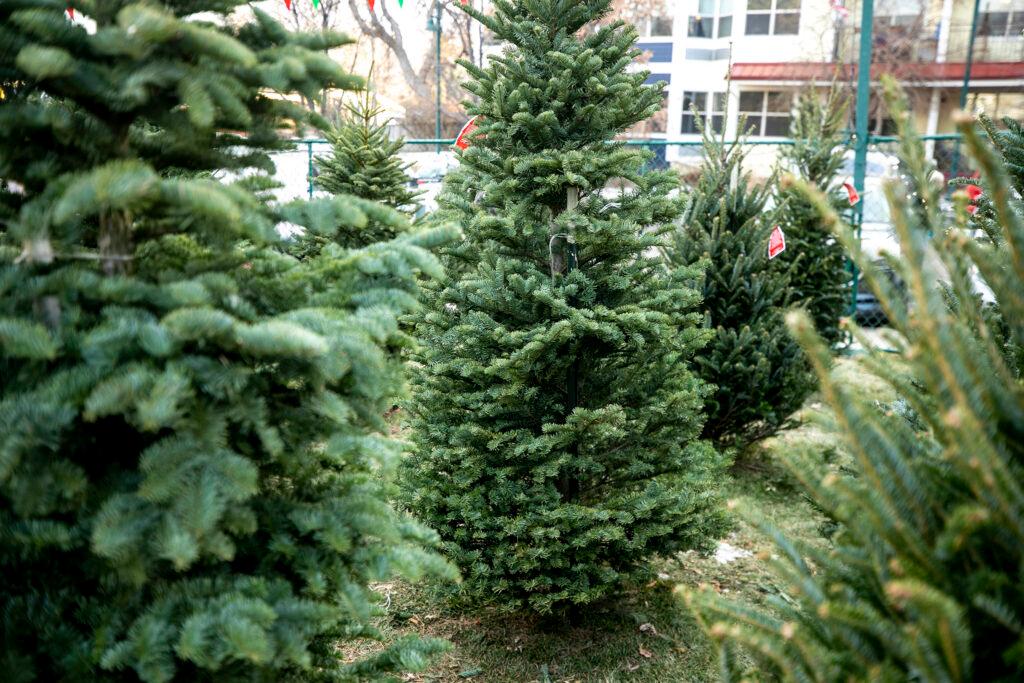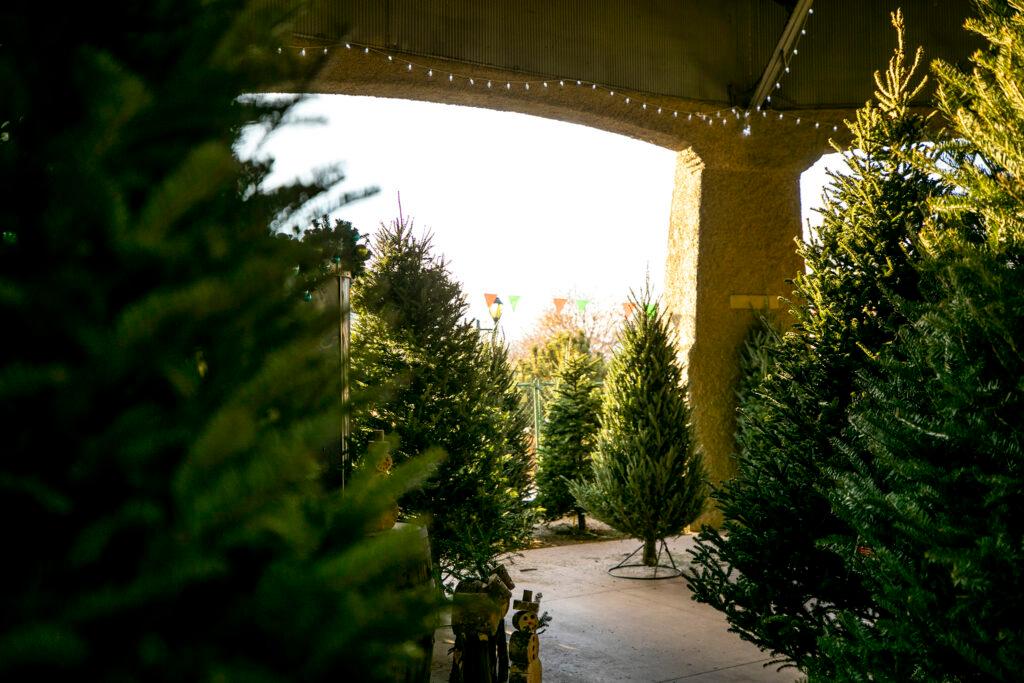
Colorado farmers are known for many beloved crops, from Palisade peaches and Olathe sweet corn to Rocky Ford melons.
Not on the list? Christmas trees.
“And yet if you look out the window as you're driving up into the foothills and the mountains, you see pine trees everywhere,” said Tim O'Connor, executive director of the National Christmas Tree Association.
Even though his organization is based in Littleton, it has no Colorado members. Farmers in the state have historically found other land uses more profitable, O’Connor explained.
“Typically, Christmas trees are grown on land that's really not suitable for other higher-valued crops,” he said. “They're grown on hilly ground. They're grown on soils that don't support other crops well. They're grown in cooler climates.”
That’s why almost any tree waiting to be purchased on a lot or outside a grocery store across the state has almost certainly taken a multi-state trip to reach holiday customers. Colorado’s pre-cut trees usually come from Oregon, Michigan, and Wisconsin, O’Connor said. North Carolina is another big Christmas tree hub, but those often stay on the East Coast.

In Montrose, however, there is one exception: Covered Bridge Ranch, where people can cut down their own Christmas trees. Natalie Riessen co-owns the farm with her father, Gary. As far as they know, they’re “the only game in town,” meaning the only you-cut tree farm in the state.
“In Colorado, it’s very difficult to grow trees because of its intense sun and heat,” Riessen said.
It doesn’t help that the region gets very little rainfall and that it takes eight to 10 years to grow a typical 6-foot tree. But Riessen and her father have been successfully growing Christmas trees since 2005 — and they sell about 1,000 a year.
Several things help keep their business strong, Riessen explained. First is planting a diverse selection of trees — more than half a dozen varieties — so the crop is less susceptible to pests. Covered Bridge Ranch also uses drip irrigation, and the Riessens don’t pull any weeds, which gives the ground natural cover and keeps the soil cooler.

Probably the biggest thing that makes their you-cut farm possible, however, is that the Riessens’ business doesn’t depend on it. The family business makes most of its money throughout the year by selling trees for landscaping. The Christmas tree farm in the winter, along with a pumpkin patch in the fall, gives them name recognition and their employees year-round work.
Riessen thinks that nostalgia attracts customers to her farm, where families can roam several acres looking for just the right tree to put in their home.
“It’s an experience you share, a multi-generational thing,” she said. “It’s one of the few things you can do together as a family.”
If you can't make it out to Montrose and have your heart set on a Colorado-grown Christmas tree, you do have other options. Several tree sellers on the Front Range offer a small selection of pre-cut, locally sourced trees along with their larger inventory, including Tomari’s Trees in Morrison and Heidrich’s Colorado Tree Farm Nursery in Colorado Springs.
And for those with the time, vehicle, and good winter boots, there’s always the option to cut down your own free-range tree on National Forest Service land. Information on permits, rules, and locations is available on the U.S. Forest Service website.








